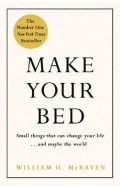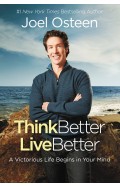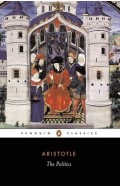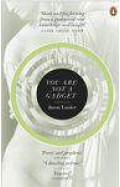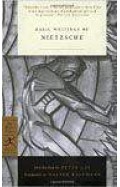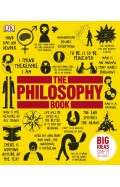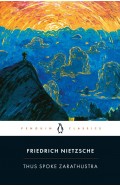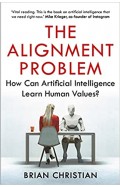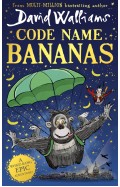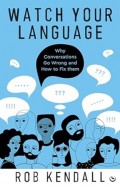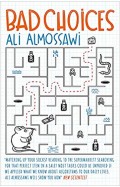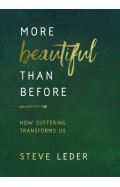How To Think: A Guide for the Perplexed
By: Alan Jacobs
-
Rs 2,545.75
- Rs 2,995.00
- 15%
You save Rs 449.25.
Due to constant currency fluctuation, prices are subject to change with or without notice.
How to Think is a contrarian treatise on why we're not as good at thinking as we assume - but how recovering this lost art can rescue our inner lives from the chaos of modern life.
Most of us don't want to think, writes the American essayist Alan Jacobs. Thinking is trouble. It can force us out of familiar, comforting habits, and it can complicate our relationships with like-minded friends. Finally, thinking is slow, and that's a problem when our habits of consuming information (mostly online) leave us lost in the echo chamber of social media, where speed and factionalism trump accuracy and nuance.
In this clever, witty book, Jacobs diagnoses the many forces that prevent thought - forces that have only worsened in the age of Twitter, such as "alternative facts," and information overload. He also dispels the many myths we hold about what it means to think well. (For example: it's impossible to "think for yourself."
Drawing on sources as far-flung as the novelist Marilynne Robinson, the basketball legend Wilt Chamberlain, the British philosopher John Stuart Mill and the Christian theologian C.S. Lewis, Jacobs digs into the nuts and bolts of the cognitive process, offering hope that each of us can reclaim our mental lives from the whirlpool of what now passes for public debate.
After all, if we can learn to think together, perhaps we can learn to live together.
How to Think is a contrarian treatise on why we're not as good at thinking as we assume - but how recovering this lost art can rescue our inner lives from the chaos of modern life.
Most of us don't want to think, writes the American essayist Alan Jacobs. Thinking is trouble. It can force us out of familiar, comforting habits, and it can complicate our relationships with like-minded friends. Finally, thinking is slow, and that's a problem when our habits of consuming information (mostly online) leave us lost in the echo chamber of social media, where speed and factionalism trump accuracy and nuance.
In this clever, witty book, Jacobs diagnoses the many forces that prevent thought - forces that have only worsened in the age of Twitter, such as "alternative facts," and information overload. He also dispels the many myths we hold about what it means to think well. (For example: it's impossible to "think for yourself."
Drawing on sources as far-flung as the novelist Marilynne Robinson, the basketball legend Wilt Chamberlain, the British philosopher John Stuart Mill and the Christian theologian C.S. Lewis, Jacobs digs into the nuts and bolts of the cognitive process, offering hope that each of us can reclaim our mental lives from the whirlpool of what now passes for public debate.
After all, if we can learn to think together, perhaps we can learn to live together.
Zubin Mehta: A Musical Journey (An Authorized Biography)
By: VOID - Bakhtiar K. Dadabhoy
Rs 892.50 Rs 1,050.00 Ex Tax :Rs 892.50
The Extraordinary Life Of Anne Frank (extraordinary Lives)
By: Kate Scott
Rs 1,695.75 Rs 1,995.00 Ex Tax :Rs 1,695.75
Think Small : The Surprisingly Simple Ways to Reach Big Goals - (PB)
By: Owain Service
Rs 1,197.50 Rs 2,395.00 Ex Tax :Rs 1,197.50
Think Better, Live Better: A Victorious Life Begins in Your Mind
By: Joel Osteen
Rs 3,735.75 Rs 4,395.00 Ex Tax :Rs 3,735.75
The Quest For Meaning: Developing A Philosophy Of Pluralism
By: Tariq Ramadan
Rs 1,185.75 Rs 1,395.00 Ex Tax :Rs 1,185.75
The Basic Writings of Nietzsche
By: Peter Gay/Sigmund Freud
Rs 3,865.50 Rs 4,295.00 Ex Tax :Rs 3,865.50
The Extraordinary Life Of Anne Frank (extraordinary Lives)
By: Kate Scott
Rs 1,695.75 Rs 1,995.00 Ex Tax :Rs 1,695.75
Think Small : The Surprisingly Simple Ways to Reach Big Goals - (PB)
By: Owain Service
Rs 1,197.50 Rs 2,395.00 Ex Tax :Rs 1,197.50
Think Better, Live Better: A Victorious Life Begins in Your Mind
By: Joel Osteen
Rs 3,735.75 Rs 4,395.00 Ex Tax :Rs 3,735.75
The Alignment Problem - How Can Machines Learn Human Values?
By: Brian Christian
Rs 1,950.75 Rs 2,295.00 Ex Tax :Rs 1,950.75
Watch Your Language - Why Conversations Go Wrong and How to Fix Them
By: Rob Kendall
Rs 5,035.50 Rs 5,595.00 Ex Tax :Rs 5,035.50
Bad Choices: How Algorithms Can Help You Think Smarter and Live Happier
By: Ali Almossawi
Rs 892.50 Rs 1,050.00 Ex Tax :Rs 892.50
The Interpretation of Dreams Concise Edition
By: Sigmund Freud
Rs 2,545.75 Rs 2,995.00 Ex Tax :Rs 2,545.75
The Web of Meaning: Integrating Science and Traditional Wisdom to Find Our Place in the Universe
By: Jeremy Lent
Rs 2,290.75 Rs 2,695.00 Ex Tax :Rs 2,290.75
Woodworking for the Weekend 20 Projects Using Reclaimed Timber
By: N/A
Rs 2,847.50 Rs 3,350.00 Ex Tax :Rs 2,847.50
Flashcards Numbers 123 – Colour Flashcards
By: Miles Kelly Publishing
Rs 1,695.75 Rs 1,995.00 Ex Tax :Rs 1,695.75
More Beautiful Than Before: How Suffering Transforms Us
By: Steve Leder
Rs 2,800.75 Rs 3,295.00 Ex Tax :Rs 2,800.75
Unicorns, Hype, and Bubbles: A guide to spotting, avoiding and exploiting investment bubbles in tech
By: Jeffrey Funk
Rs 4,315.50 Rs 4,795.00 Ex Tax :Rs 4,315.50
Zubin Mehta: A Musical Journey (An Authorized Biography)
By: VOID - Bakhtiar K. Dadabhoy
Rs 892.50 Rs 1,050.00 Ex Tax :Rs 892.50
The Extraordinary Life Of Anne Frank (extraordinary Lives)
By: Kate Scott
Rs 1,695.75 Rs 1,995.00 Ex Tax :Rs 1,695.75
Think Small : The Surprisingly Simple Ways to Reach Big Goals - (PB)
By: Owain Service
Rs 1,197.50 Rs 2,395.00 Ex Tax :Rs 1,197.50
Think Better, Live Better: A Victorious Life Begins in Your Mind
By: Joel Osteen
Rs 3,735.75 Rs 4,395.00 Ex Tax :Rs 3,735.75












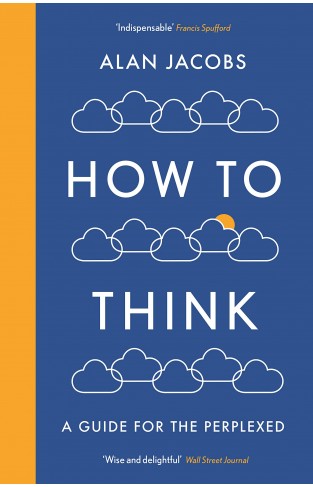
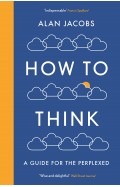
-120x187.jpg?q6)





-120x187.jpg?q6)
-120x187.jpg?q6)
